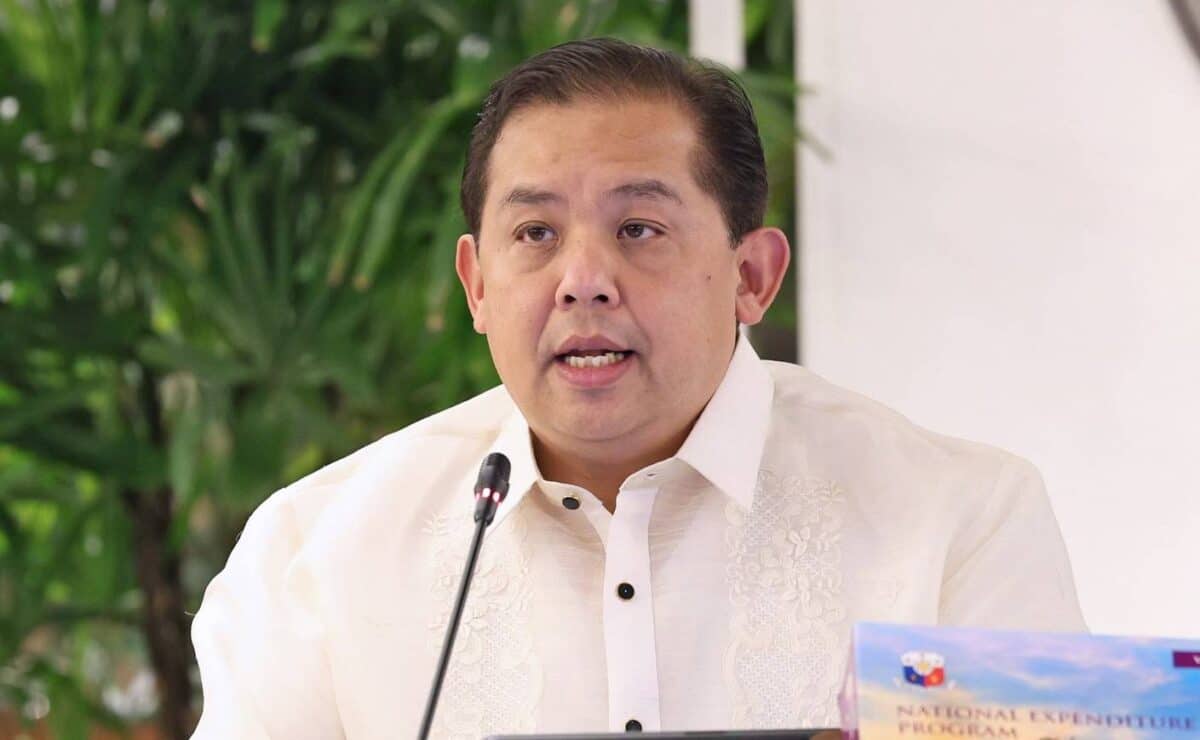

Rep. Ferdinand Martin Romualdez. | PHOTO: HOUSE OF REPRESENTATIVES
MANILA, Philippines — Leyte 1st District Rep. Ferdinand Martin Romualdez has agreed with proposals to establish more disaster response hubs across the country, adding that a law to institutionalize the country’s disaster resilience efforts is needed.
Romualdez, in a statement on Monday, said the House of Representatives supports President Ferdinand Marcos Jr.’s move to expand the disaster response infrastructure, which came after the chief executive inspected the National Resource Operations Center (NROC) in Pasay City last Friday.
“We fully support the President’s proactive move to expand the country’s disaster response infrastructure,” Romualdez said.
“But to ensure consistency, efficiency, and sustainability, we must legislate and institutionalize resilience and readiness into our national development strategy,” he added.
Marcos inspected the NROC, where the packing of relief goods was done, in preparation for Tropical Storm Crising.
READ: Marcos inspects DSWD relief ops ahead of Crising landfall
Crising has already left the Philippine area of responsibility on Saturday morning, but rains have persisted in different parts of Luzon particularly Metro Manila due to the southwest monsoon or habagat.
As of Monday, five have been confirmed dead while seven are missing due to the combined effects of the monsoon and Crising.
READ: Habagat, Crising leave 5 dead, 7 missing – NDRRMC
Romualdez — who hails from Leyte which was among the areas hard-hit by Super Typhoon Yolanda in 2013 — said that disaster prevention and response should be institutionalized since calamities cannot be predicted.
The 19th Congress Speaker said that while the efforts of the Department of Social Welfare and Development (DSWD) are laudable, as it was able to assist people affected by Crising and the southwest monsoon, a law on disaster resilience would bode well for the country.
“Calamities do not follow a schedule. Our response mechanisms shouldn’t depend solely on executive discretion or seasonal budget availability,” he said.
“These are impressive figures, but we must ensure that this level of preparedness is not only maintained but improved through legal mandates,” he added, referring to DSWD’s usage of P2.9 billion standby funds, and the preposition of 3 million food packs, over 28,000 boxes of ready-to-eat food, and nearly 335,000 non-food items.
Romualdez and other lawmakers in 2022 filed House Bill No. 13, which called for the creation of a Department of Disaster Resilience. If enacted, the agency will be responsible for “organizing, leading, and managing the national effort to reduce disaster risks, ensure preparedness and swift response, and oversee post-disaster recovery and rehabilitation.”
READ: Creation of ‘Department of Disaster Resilience’ sought
“We should not just react—we should be ready. Our laws must match the scale of risk that climate change, earthquakes, and other disasters now pose to our country,” Romualdez said.
“From the barangay to the national government, disaster response must be swift, smart, and seamless. Let us give our frontliners and responders the legal tools and resources they need to protect lives,” he added. /mr

